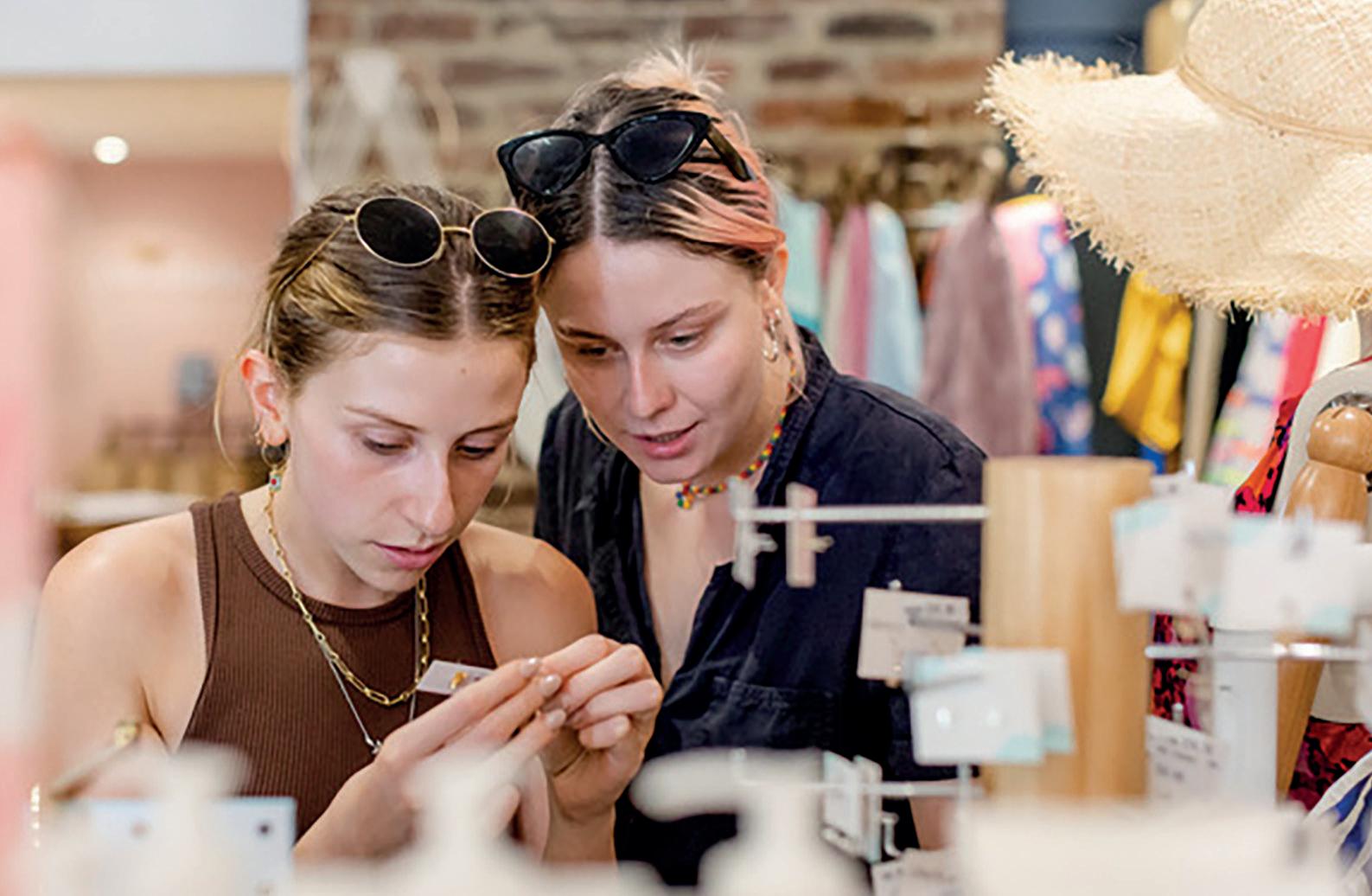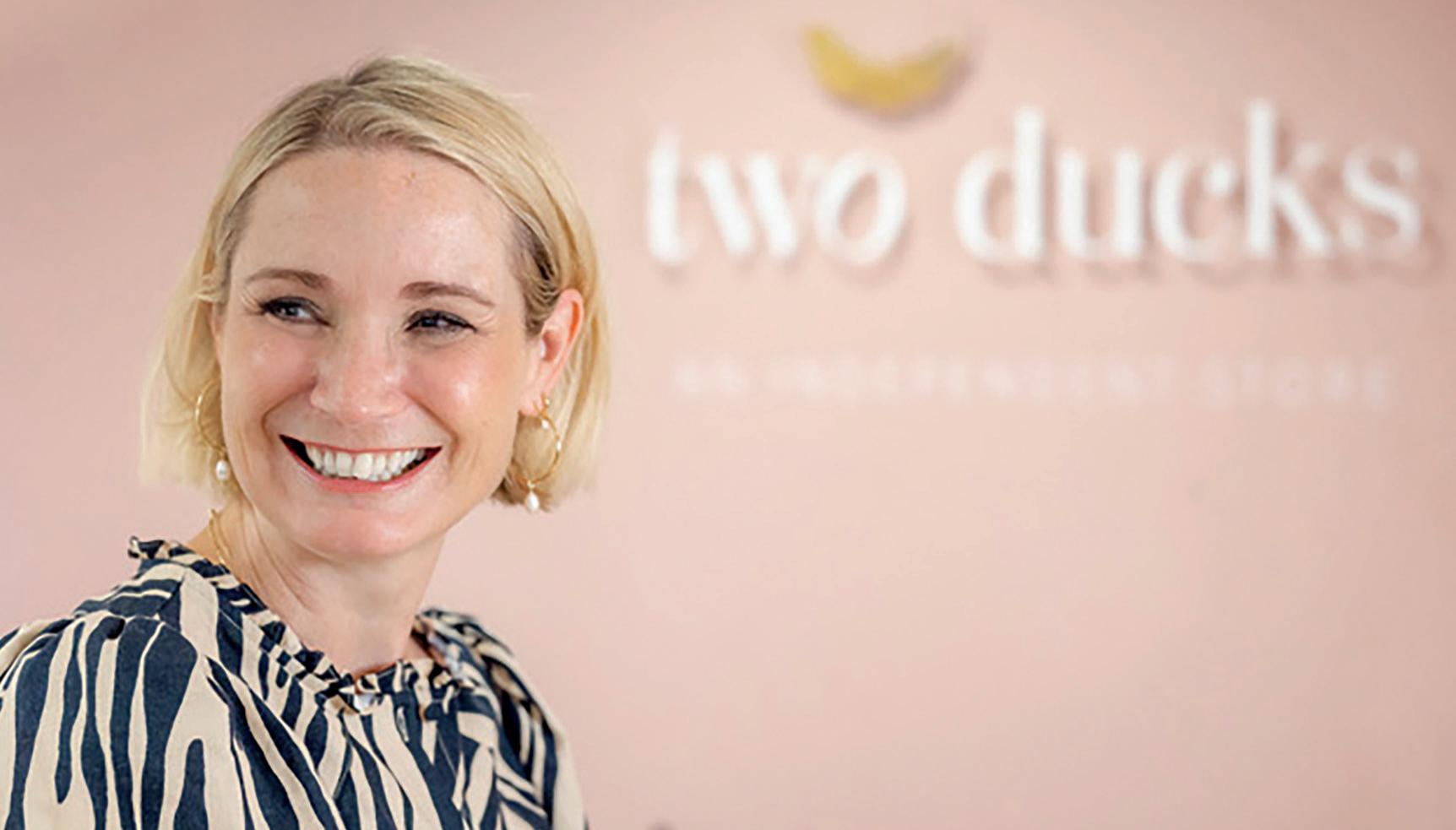
3 minute read
Claire Leigh, owner of Two Ducks in Woking

Clare Leigh, owner of Two Ducks in Woking, asks: how ‘essential’ are you?
Diary of a gift shop
When the government declared us all ‘non-essential’ retailers during the first lockdown, how did that make you feel? Just a little bit perturbed, I imagine, if you are anything like me. After all, for our customers, we are not just shops, we are their therapy in tough times.
So no doubt, like me, you rushed around like a headless chicken trying to work out how you might become ‘more’ essential. And perhaps, like me, you created a takeaway coffee and cake offering to ensure your doors could remain open and you could still greet your customers on a daily basis - albeit from the doorstep, in a mask, and from a distance.
As we have transitioned back to ‘normal’ shop life, where our doors are open and the two metre social distancing stickers have been well and truly scraped off the floorboards, we are perhaps standing in the doorway, scratching our heads, bewildered at how we got to the point where things could actually be worse than they were during the pandemic.
But who could have predicted a war, an energy crisis, and a cost-of-living crunch (on top of the cumulative issues of Covid, Brexit and the global supply chain), which have created some of the most challenging conditions we have perhaps ever faced. You can certainly have sympathy with those who have decided to hang up their coats and close their shop doors for good.
And for those of us who cling on to our shopkeeping dream, now, more than ever, we have to fight our own war to remain ‘essential’ in our customers’ hearts and minds, so we don’t automatically disappear off their shopping lists when pennies are tight. So, what can we do to mitigate that risk? Well, here’s the five main steps we’re taking:
Basically what I’m saying is we can’t stand still. We can’t afford to. We need to remain ‘essential’ in our customers’ hearts and minds by really tuning into what they need from us right now.
1. Analyse all areas of the shop for profitability. How is each segment performing? Would it benefit from a change, a shakeup or a complete overhaul? 2. Review price points of stock, and assess suppliers: are they being helpful/flexible in tough times? Review the bigger picture: might you need changes in staffing, location, banking or focus?
3. Communication to customers. Keep them close: send them a weekly newsletter telling them what you are specifically doing to help them such as keeping prices the same, doing deals, focusing on cost-effective best sellers and so on. Show up on social media, particularly Instagram in the gifting market - on a slow sales day, this app can be the key to spontaneous online sales and interest. 4. Add value. Provide events that show customers you care - not just about their pennies, but about their wellbeing and what’s important to them right now. Our fashion events are focusing on ‘styling up’ while working from home, or going to a friends for dinner, rather than those expensive nights out that people may be avoiding just now. Remember to make the shop look as attractive as you can, to tempt shoppers in and give them a great experience. Are your staff trained in visual merchandising? 5. Get support. Are you a member of Bira (British Independent Retailers Association)? [This trade body] can help you with a large number of issues including discounts from suppliers, HR and legal advice, and payment services. And engage with your other local businesses. We have started a WhatsApp group so we can look to support each other’s events and concerns. Find your nearest Facebook group of boutique/ shop owners so you can share advice - and share your pain - it’s important!
Photo: Eddie Judd Photography
Email: hello@two-ducks.co.uk Visit: two-ducks.co.uk FB: twoduckslifestyle Instagram: twoduckslifestyle










